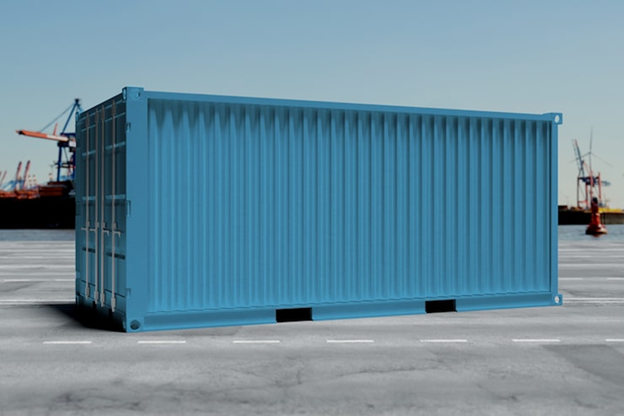Expanding into smaller, emerging markets like Comoros offers unique opportunities but also comes with distinct compliance and operational challenges. Businesses seeking efficient entry strategies can leverage a Professional Employer Organization in Comoros to streamline hiring, payroll, and compliance management without setting up a local entity. This model enables organizations to focus on growth while ensuring they operate within the country’s legal and regulatory frameworks.
Understanding PEO Services in Comoros
A Professional Employer Organization (PEO) provides co-employment services, where the PEO manages administrative and compliance functions while the client company maintains control over the employee’s daily work. This arrangement is particularly valuable in Comoros, where navigating labor laws, payroll regulations, and employment frameworks can be resource-intensive for foreign companies.
Key functions of a PEO in Comoros include:
- Drafting compliant employment contracts
- Managing payroll and tax withholdings
- Overseeing social security contributions
- Supporting employee onboarding and exit processes
- Advising on labor law and HR policies
- Facilitating work permits for expatriates
By consolidating these responsibilities under a PEO, international employers reduce risks and accelerate their market entry.
Labor and Employment Compliance in Comoros
Employment in Comoros is regulated by the Labor Code, which outlines employer obligations and worker protections. Foreign companies must comply strictly with these provisions to avoid penalties.
Core compliance requirements include:
- Employment contracts: Must be written and specify essential terms such as job description, compensation, and conditions of employment.
- Working hours: Typically capped at 40–44 hours per week, with overtime subject to statutory rates.
- Leave entitlements: Workers are entitled to paid annual leave, sick leave, and maternity or paternity leave.
- Termination rules: Employment contracts require notice and severance payments depending on tenure and reason for dismissal.
- Social security obligations: Employers must contribute to the national system, covering health insurance, retirement, and occupational accident protections.
A PEO ensures that these obligations are met consistently, reducing the likelihood of disputes or non-compliance.
Payroll and Tax Management in Comoros
Running payroll in Comoros requires accurate compliance with tax and social contribution frameworks. Mismanagement can result in fines, reputational risks, and strained employee relations.
Payroll responsibilities handled by a PEO include:
- Calculating and withholding personal income tax based on progressive rates
- Processing employer and employee contributions to the social security fund
- Administering statutory benefits, including pensions and health coverage
- Submitting required reports to government authorities on time
- Ensuring salaries are paid in Comorian francs (KMF) and aligned with local banking requirements
For international employers unfamiliar with the local system, outsourcing payroll to a PEO ensures both accuracy and compliance.
Benefits of Using PEO Services in Comoros
Partnering with a Professional Employer Organization in Comoros provides numerous strategic and operational advantages.
Notable benefits include:
- Rapid market entry: Begin hiring immediately without creating a legal entity.
- Reduced compliance risk: Local experts manage labor, payroll, and tax obligations.
- Cost efficiency: Avoid overhead costs of building in-house HR infrastructure.
- Flexibility: Scale workforce up or down depending on project needs.
- Improved employee experience: Professional HR support fosters retention and engagement.
For businesses operating in volatile or resource-constrained environments, these benefits can provide a critical competitive edge.
PEO vs. Employer of Record (EOR) in Comoros
While the terms are sometimes used interchangeably, there are distinctions between PEO and EOR models.
- PEO model: The company and the PEO share employment responsibilities through co-employment. The client directs work, while the PEO manages compliance and administration.
- EOR model: The Employer of Record becomes the full legal employer of the staff, assuming all statutory responsibilities on behalf of the client.
In Comoros, businesses may choose a PEO when they want to retain certain HR functions, while EOR services may be preferred for full compliance outsourcing.
Industries Leveraging PEO Services in Comoros
Certain sectors in Comoros are particularly well-suited to PEO solutions due to their compliance demands and project-based workforce structures.
- Agriculture and fisheries: Seasonal employment and export-focused projects require flexible workforce management.
- Tourism and hospitality: Hotels and resorts rely on compliant hiring to support fluctuating staffing needs.
- Energy and infrastructure: International projects often require fast deployment of both local and expatriate staff.
- Development and NGOs: International organizations benefit from a streamlined employment solution without entity setup.
- Telecommunications: Growing demand for digital services fuels demand for skilled employees managed through compliant HR frameworks.
PEO providers help companies in these industries avoid regulatory pitfalls while remaining agile.
Strategic Considerations for Selecting a PEO in Comoros
Choosing the right partner is essential for maximizing the value of PEO services.
Important evaluation factors include:
- Expertise in local labor and tax legislation
- Ability to manage both local and expatriate employee needs
- Transparent pricing and clear scope of services
- Robust HR technology and reporting capabilities
- Regional coverage to support future African market expansion
A well-chosen PEO partner becomes a long-term strategic ally in workforce and compliance management.
Future of PEO Services in Comoros
As Comoros works to attract investment in tourism, agriculture, and renewable energy, demand for flexible and compliant employment solutions will continue to grow.
Trends likely to shape the future include:
- Increased adoption of digital HR and payroll platforms
- Higher demand for compliance assurance in multinational operations
- Expansion of project-based contracts in infrastructure and energy sectors
- Growing involvement of NGOs and development agencies requiring streamlined employment solutions
These dynamics reinforce the importance of PEO providers in helping international firms navigate the evolving employment landscape.
Conclusion
Engaging a Professional Employer Organization in Comoros allows businesses to expand into this emerging market with reduced risk and enhanced efficiency. By outsourcing HR administration, payroll, and compliance, companies can focus on strategic growth while ensuring alignment with Comorian labor laws and regulations. For organizations seeking a reliable entry strategy into the region, PEO services provide a practical and sustainable solution.





